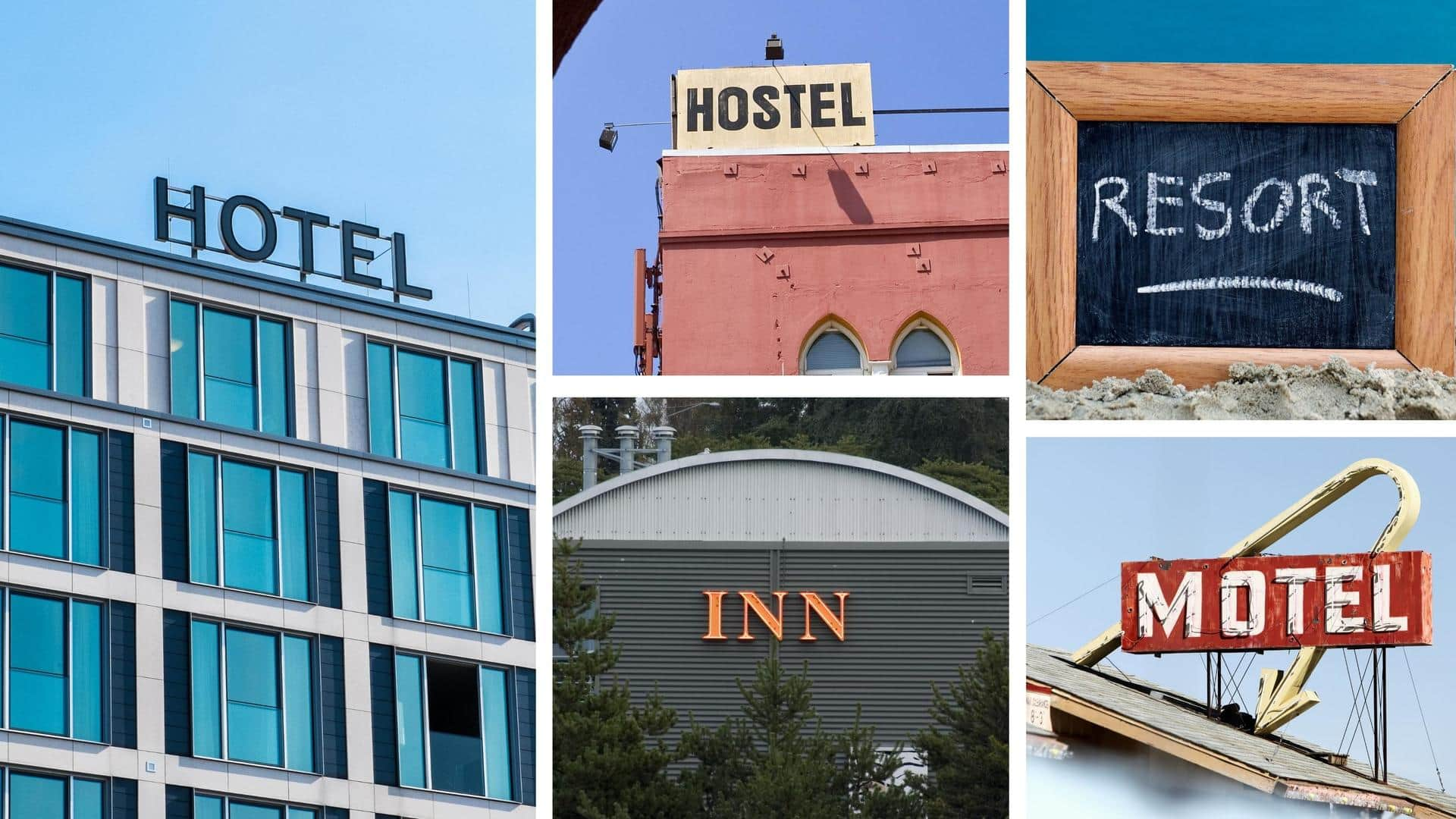
Understand the difference between inn, hotel, hostel, motel, and resort
What's the story
They may be closely related, but are totally different from each other.
We usually become spoilt for choice when it comes to booking accommodation while traveling.
After all, there are so many options to choose from, each tailor-made to suit different types of travelers.
So on that note, let's understand the difference between an inn, hotel, hostel, motel, and resort.
First and small
Inn
Factually, inns were the first known accommodations that came into existence back during the 1700s.
Today, these generally feature 15 to 20 rooms, a building not more than one floor, and basic facilities like TV.
They are typically smaller than hotels and have fewer amenities. Additionally, most inns do not have in-house restaurants and are typically owned by a family.
Large and luxurious
Hotel
The concept of hotels dates back to the mid-18th century when inns, owing to the industrial revolution, took a different structure, comfort, and luxury.
Hotels are generally owned by large corporations and are bigger in size than inns and most accommodations.
Unlike inns, these offer a plethora of facilities and amenities like in-house restaurants, spas and wellness centers, bars, gyms, swimming pools, etc.
Budget-friendly
Hostel
Hostels offer dormitory-like settings where an individual shares a room with others.
It offers shared amenities like washrooms, a common kitchen, and a common lounge area.
Hostels are more budget-friendly, quirky, and casual as compared to hotels and inns.
While you book a room in all other kinds of accommodations, in hostels, you rent a bed per night and cook your own meals.
Pit stops
Motel
Motel is a combination of the words "motor" and "hotel."
You will generally find them on highways, making them the perfect pit stop for drivers and riders on a long trip.
Additionally, these establishments offer limited facilities like parking, meals, and rooms at a frugal price.
They are usually small in size and are perfect for those wanting to halt while in transit to another destination.
Offbeat and soothing
Resort
While a hotel's primary motive is to offer comfort, a resort is more inclined toward becoming a self-contained destination on its own.
They may have swimming pools, lounges, game rooms, and sometimes even adjacent theme parks and shopping centers, all of which are included in your purchase.
They are most likely nestled in offbeat locations or near historical landmarks or beaches.